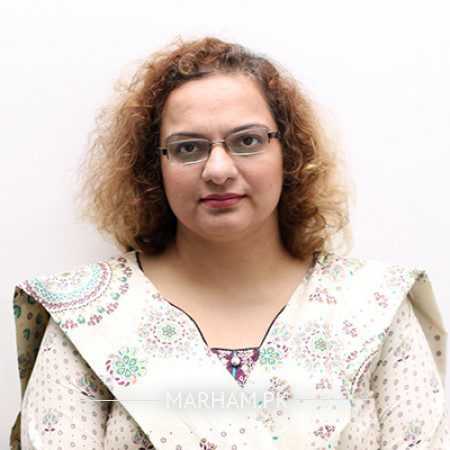It is the fact that a missed period is disturbing. First, many of us start to get anxious that we might be pregnant. Later, we have no way of predicting when it might decide to arrive leaving us exposed to anxiety. And then there is the other impending question that, what has made us miss it in the first place?
“At least 30 percent of women have irregular periods during their childbearing years, while an irregular cycle is not usually a problem, it can occasionally signal some health complications.”
-A Gynecologist at Marham
What Is An Irregular Period?
A regular menstrual cycle lasts for 28 days, plus or minus 7 days. Menstrual bleeding is considered irregular if it occurs more frequently than every 21 days or lasts longer than 8 days. The period that is missed, early, or late are also considered symptoms of an irregular cycle. If you are living in Lahore, you can consult with the best gynecologist in Lahore and other cities of Pakistan.


“Your “Menses” begins around 11-12 years of age, lasts 2-7 days and continues until you reach menopause, which usually occurs when you are around 51 years old.”
-Our Senior Gynecologist
An Irregular period may include everything from a late period to early bleeding and scant bleeding to extremely heavy bleeding. For many women, this can even mean an absent period (amenorrhea) or two periods in one month (metrorrhagia). If you are facing these two conditions, which is caused by an imbalance of estrogen and progesterone. Then it may require a visit to the doctor since this can induce anemia. If you or your friend is facing the irregular period issue, this can be very disturbing as it signals other health complications, so search for the nearest doctor or you may book an online appointment with the best gynecologist in Karachi, Lahore, Islamabad or other main cities of Pakistan.
Must Read: 5 Best Gynecologists in Lahore
The ovulation has its own huge significance as a part of the menstrual cycle and it occurs around “Day 14” when an ovarian follicle produces an egg, which can be fertilized by sperm after intercourse. This egg is only accessible to be fertilized for 24 hours before it withers. Once you have ovulated, your period will occur, which is typically 14 days later.
Causes Of An Irregular Period:
Anovulation is the condition which means that the ovulation hasn’t taken place during your menstrual cycle, usually due to severe hormonal imbalances. However, the following factors can also trigger irregular periods:
-
- Birth control pills: Can result in missed periods or have less or more frequent periods, or even no periods at all.
- Extreme exercise or dieting: Being underweight, having an eating disorder, or an illness.


-
- Age: A missed periods and lighter or heavier periods are common as women near menopause.
- Polycystic ovary syndrome (PCOS): Women with PCOS usually have a history of irregular periods. In addition to causing infertility, PCOS can increase the risk of diabetes and heart disease.
- Stress: Short-term anxiety.
- Other illnesses: Diabetes, Thyroid disorders, sexually transmitted diseases, fibroids, eating disorders, and endometriosis can lead to irregular periods.
A coalesce of irregular periods in a year are usually nothing to be depressed about. And more than that, you should visit a health care provider to be sure an ovulation problem or health condition isn’t the cause.







